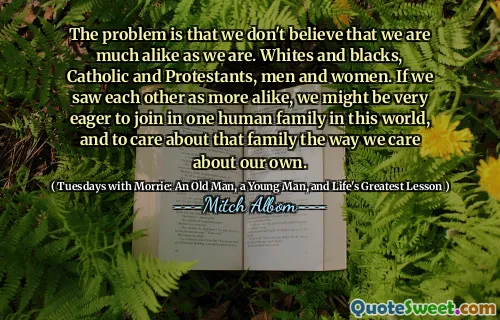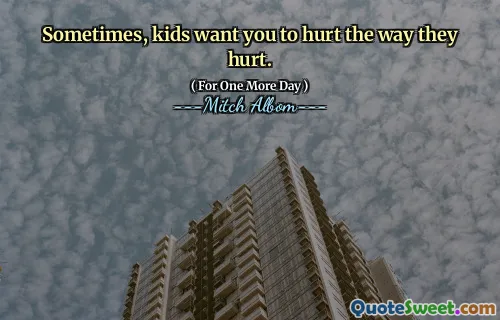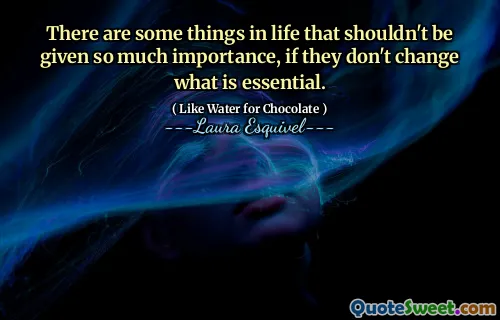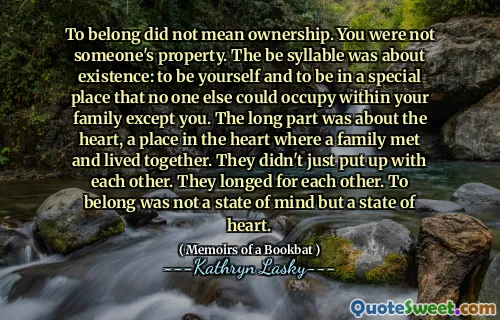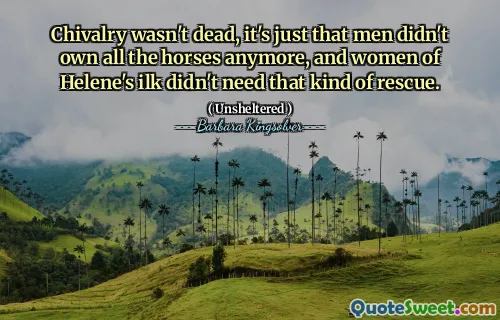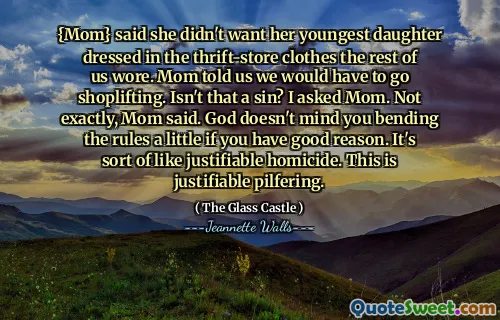
Sometimes I'd see my father, walking past my building on his way to another nowhere. I could have given him a key, offered a piece of my floor. A futon. A bed. But I never did. If I let him inside I would become him, the line between us would blur, my own slow-motion car wreck would speed up. The slogan on the side of a moving company truck read TOGETHER WE ARE GOING PLACES--modified by a vandal or a disgruntled employee to read TOGETHER WE ARE GOING DOWN. If I went to the drowning man the drowning man would pull me under. I couldn't be his life raft.
[In this poignant reflection, the narrator explores the profound emotional boundaries that define family and individual identity. The recurring image of the father walking past, symbolizing an ongoing distance and disconnect, emphasizes the difficulty in bridging emotional gaps even when vulnerability beckons. The offer of sharing space—a key, a futon, a bed—represents a yearning for connection, yet the narrator's fears of losing selfhood illuminate the complex interplay between love and self-preservation.
The metaphor of the slogan on the moving truck is particularly striking: it transitions from hopefulness ('Together we are going places') to despair ('Together we are going down'). This shift encapsulates how relationships that seem promising can, under strain or in certain contexts, become burdens or sources of destruction. The final analogy of the drowning man underscores a critical sentiment—sometimes attempting to help may result in harm, and instincts to rescue can paradoxically lead to being pulled under.
This quote invites reflection on the fears that accompany intimate connections, especially with family members facing struggles or declines. It underscores the importance of boundaries for emotional safety and the recognition that well-intentioned proximity can sometimes threaten personal integrity. Such insights resonate with the universal experience of loving someone while acknowledging our limitations, a delicate balance between compassion and self-care. Ultimately, it evokes contemplation on the costs and sacrifices inherent in close relationships, understanding that sometimes salvation for another may come at the expense of one's own stability or identity.
Exploring the tension between empathy and self-preservation, the quote challenges us to consider how we navigate interconnected lives while maintaining the boundaries necessary to sustain our own well-being. It poignantly captures the complicated, often painful truths about familial love and the limits of our capacity to help or be helped.


